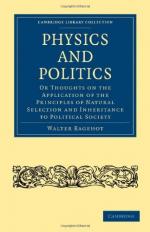“Above all, let us never forget that an act of goodness is in itself an act of happiness. It is the flower of a long inner life of joy and contentment; it tells of peaceful hours and days on the sunniest heights of our soul.” This thought lies at the root of his whole philosophy—goodness, happiness, love, supporting each other, intertwined, rewarding each other. “Let us not think virtue will crumble, though God Himself seem unjust. Where could the virtue of man find more everlasting foundation than in the seeming injustice of God?” Strange that the man who has written these words should have spent all his school life at a Jesuit college, subjected to its severe, semi-monastic discipline; compelled, at the end of his stay, to go, with the rest of his fellows, through the customary period of “retreat,” lasting ten days, when the most eloquent of the fathers would, one after the other, deliver sermons terrific to boyish imagination, sermons whose unvarying burden was Hell and the wrath of God—to be avoided only by becoming a Jesuit priest. Out of the eighteen boys in the “rhetorique” class, eleven eagerly embraced this chance of escape from damnation. As for M. Maeterlinck himself--fortunately a day-boarder only—one can fancy him wandering home at night, along the canal banks, in the silence broken only by the pealing of church bells, brooding over these mysteries ... but how long a road must the man have travelled who, having been taught the God of Fra Angelico, himself arrives at the conception of a “God who sits smiling on a mountain, and to whom our gravest offences are only as the naughtiness of puppies playing on the hearth-rug.”
His environment, no less than his schooling, helped to give a mystic tinge to his mind. The peasants who dwelt around his father’s house always possessed a peculiar fascination for him; he would watch them as they sat by their doorway, squatting on their heels, as their custom is—grave, monotonous, motionless, the smoke from their pipes almost the sole sign of life. For the Flemish peasant is a strangely inert creature, his work once done—as languid




